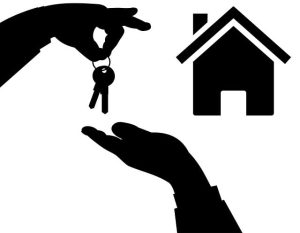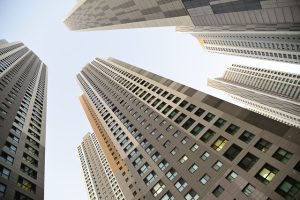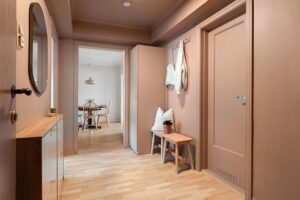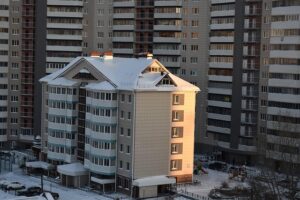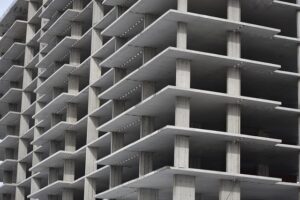Navigating the Legal Aspects of HDB Executive Condos: A Comprehensive Guide
In Singapore, Housing & Development Board (HDB) Executive Condominiums (ECs) serve as a unique housing option for eligible couples and individuals, blending features of both public and private housing. ECs are designed for those who do not qualify for stan…….

In Singapore, Housing & Development Board (HDB) Executive Condominiums (ECs) serve as a unique housing option for eligible couples and individuals, blending features of both public and private housing. ECs are designed for those who do not qualify for standard HDB flats due to income constraints but are willing to transition to full privatization after a set period. To purchase an EC, applicants must be Singaporean citizens without existing residential property ownership for the past five years. The application process is conducted through the HDB website or at service centers, with successful applicants selected via ballot. Upon approval, buyers obtain a 99-year lease and can secure financing from financial institutions. After a Minimum Occupation Period (MOP) of 5 to 10 years, ECs can be sold on the open market without restrictions. Owners must adhere to specific rights and obligations, including maintenance, HDB guidelines, and by-laws, which also govern subletting, alterations, and living standards. Understanding these conditions is crucial for responsible EC ownership and managing these properties effectively within the community.
Exploring the nuanced landscape of Housing & Development Board (HDB) Executive Condominiums (ECs) necessitates a comprehensive understanding of their unique status and the myriad legal considerations that govern them. This article demystifies the HDB EC framework, from eligibility and ownership restrictions to the application process and financial aspects. It provides an exhaustive guide on the rights and obligations of owners, the implications of policy changes, leasing practices, dispute resolution, enforcement of by-laws, and the responsibilities associated with maintenance and insurance. Additionally, it explores the role of the Custodian Board, the BTO scheme’s intricacies for HDB ECs, and insights into future legal considerations. Whether you’re a current resident or considering an investment in an HDB EC, this article is your comprehensive guide to navigating the complex legalities involved.
- Understanding HDB Executive Condominiums (ECs) and Their Unique Status
- Legal Framework Governing HDB ECs: What You Need to Know
- Eligibility Criteria for Applying for an HDB EC
- Ownership and Resale Restrictions Specific to HDB ECs
- The Application Process for an HDB EC: A Step-by-Step Guide
- Rights and Obligations of HDB EC Owners
Understanding HDB Executive Condominiums (ECs) and Their Unique Status

Housing and Development Board (HDB) Executive Condominiums (ECs) represent a unique segment within Singapore’s property landscape, blending the features of both public and private housing. Prospective homeowners interested in HDB ECs should understand their distinctive status, which is a transitional one: upon completing the minimum occupation period of five years, ECs will automatically upgrade to private condominiums. This transition underscores the importance for buyers to be well-versed in the specific rules and regulations that govern ECs, as they differ from those applying to HDB flats or private condos. For instance, eligible applicants must meet income ceilings and are required to fulfill a minimum occupancy period before they can sublet their unit or sell it on the open market. HDB ECs offer the benefits of subsidy schemes available for HDB flat buyers, such as the CPF Housing Grant, while also providing some of the facilities and lifestyle options associated with private condos. This duality makes them an attractive option for those looking to upgrade from a public housing flat without the immediate transition to a fully privatized dwelling. Understanding these nuances is crucial for potential buyers to navigate the HDB EC market effectively and make informed decisions about their property investments.
Legal Framework Governing HDB ECs: What You Need to Know

When considering the purchase of an Executive Condominium (EC) in Singapore, understanding the legal framework that governs these unique hybrid properties is crucial. HDB ECs are a housing option designed for couples who want the benefits of a condo while being eligible for housing grants provided by the Housing & Development Board (HDB). These units combine the features of a private condo with public housing privileges, such as the ability to subside the loan from financial institutions. The legal framework is established and regulated under the Housing & Development Board Act, which outlines the eligibility criteria for purchasing an EC. Prospective buyers must meet specific criteria set by the HDB at the point of application; for instance, they must be Singapore citizens who have not previously owned a flat.
Furthermore, once ownership is transferred to the applicants, they will enjoy the same privileges as other private condominium owners, except for the resale restrictions and subsidy eligibility. After fulfilling the minimum occupation period of 5 years, ECs can be sold on the open market to Singapore citizens or to Singapore PRs within certain stipulated periods. It’s imperative to stay abreast of any changes in regulations that may affect your rights as an owner of an HDB EC. The legal considerations for HDB ECs are multifaceted and involve understanding the conditions under which you can sell, lease, or sublet your unit, as well as the implications for your Singaporean identity card and your application for housing grants. Prospective buyers should refer to the official HDB guidelines or consult with a legal expert specializing in property law in Singapore to ensure compliance with all regulations before making such a significant investment.
Eligibility Criteria for Applying for an HDB EC

When considering the purchase of an Executive Condominium (EC) in Singapore, potential homeowners must be well-versed with the eligibility criteria set forth by the Housing & Development Board (HDB). As of the latest guidelines, applicants for an HDB EC must satisfy certain conditions. Firstly, they should be at least 21 years old and Singaporean citizens. Additionally, applicants must not own or have disposed of any residential property within the preceding 30 months before the application. This includes private properties as well as other types of public housing, such as HDB flats. Further, couples applying together must not already own or have applied to buy, build or acquire a resale flat from the open market. Moreover, they should adhere to the Monthly Household Income Ceiling (MHIC) set by the HDB, which varies according to flat type and location. These income ceilings are designed to ensure that only eligible applicants who meet the financial criteria can apply for an EC. Prospective buyers should also be aware of the resale restrictions associated with ECs; they will revert to regular public housing after a certain period, typically five years from the date of obtaining the Temporary Occupation Permit (TOP). This means that owners can only sell their unit to Singaporean citizens, permanent residents or eligible foreign spouses after satisfying this condition. It is crucial for potential EC owners to thoroughly understand these eligibility criteria to navigate the application process smoothly and in compliance with HDB regulations.
Ownership and Resale Restrictions Specific to HDB ECs

When considering the purchase of an Executive Condominium (EC) in Singapore, understanding the unique ownership and resale restrictions is crucial for prospective homeowners. Unlike other condominiums, HDB ECs have a dual set of eligibility criteria; they are initially targeted at younger couples who may not yet meet the income ceiling for public housing, but over time, they revert to private property status with different rules applying to ownership and resale. For instance, Singaporean citizens or permanent residents can purchase an EC flat directly from the Housing & Development Board (HDB). However, after fulfilling the minimum occupation period of five years, the flat will automatically become a private property, subject to the Private Residential Property Act.
During the initial 5 to 10-year Minimum Occupation Period (MOP), HDB EC owners are bound by specific conditions. For example, they must sell back the flat to the HDB if they choose to move out within this period. Upon satisfying the MOP and the flat’s status changes to private property, original owners can then sell it on the open market without restrictions, provided they are Singaporean citizens. Moreover, foreigners are eligible to purchase HDB ECs directly only if they are married to Singaporean citizens or permanent residents. The resale of HDB ECs after the MOP also follows different guidelines from those applying to public housing, reflecting their transition to private property status. Prospective buyers must be aware that these legal distinctions affect their rights and responsibilities as owners of an HDB EC, influencing both their initial purchase and any future resale transactions.
The Application Process for an HDB EC: A Step-by-Step Guide

When considering the acquisition of an Executive Condominium (EC) in Singapore, understanding the application process is crucial for eligible applicants. An HDB EC is a housing option that offers the benefits of both a public and a private flat, catering to the needs of couples who wish to upgrade from a Housing & Development Board (HDB) flat but are not yet ready to sell their flats. The first step in the application process involves meeting the eligibility criteria set by the HDB, which includes being a Singaporean couple, one of whom must be a first-timer for EC applicants. This ensures that at least one applicant has not previously owned an EC, DBSS flat, or any residential property within the past five years.
Upon satisfying the eligibility requirements, prospective buyers can then submit their applications through the HDB website or at any HDB service center. The application process is streamlined to facilitate a smooth experience for applicants. Potential buyers need to select an EC unit from those available under the sale of balance flats or from the new EC launch by a developer. After choosing the desired unit, applicants must submit their applications alongside the required documents, which typically include proof of income, identification, and other necessary particulars. Once the application is approved, the SingPass of the applicant will be used to book a ballot session to draw lots for the chosen unit. The balloting exercise is conducted to ensure fair allocation of units among eligible applicants. Successful applicants will then proceed with the booking of their EC unit and enter into a lease agreement with HDB, after which they can engage a bank or financial institution to secure financing for their purchase. Throughout this process, it is imperative to stay informed about the latest regulations and guidelines provided by the HDB to ensure compliance and a successful application for an HDB Executive Condo.
Rights and Obligations of HDB EC Owners

Housing & Development Board (HDB) Executive Condos (ECs) offer a unique housing option for couples and families in Singapore, blending public and private housing benefits. As owners of an EC, individuals are subject to specific rights and obligations that differ from those living in traditional HDB flats or private condominiums. These rights and obligations are designed to ensure a harmonious living environment within the EC development.
Owners of HDB ECs have the right to enjoy the facilities provided within the estate, participate in the management of the EC, and live in the unit for a minimum occupancy period. During this time, they must adhere to the stipulation that at least one eligible family member must reside in the EC. Additionally, after fulfilling the minimum occupation period, owners have the option to sell their flat back to the HDB or privatize their unit. On the obligation front, HDB EC owners are required to maintain their flats, comply with the housing guidelines set by HDB, and adhere to the Master Deed and by-laws of the EC. These regulations govern issues such as the alteration of units, subletting conditions, and the enforcement of bylaws to preserve the quality of living within the estate. Understanding these rights and obligations is crucial for HDB EC owners to navigate their tenure effectively and responsibly.
When considering the acquisition or ownership of an HDB Executive Condo (EC), it is crucial for potential homeowners to thoroughly understand the unique legal framework and eligibility criteria that govern these properties. This article has outlined the distinct characteristics of HDB ECs, the legal considerations, eligibility requirements, ownership and resale restrictions, and the application process involved. Prospective buyers must navigate these aspects carefully to ensure compliance with Housing & Development Board (HDB) regulations. By doing so, they can make informed decisions that align with their long-term housing goals within this specialized segment of Singapore’s property market. Understanding the rights and obligations associated with owning an HDB EC is essential for a seamless experience, whether it be for initial occupancy or future resale opportunities.

